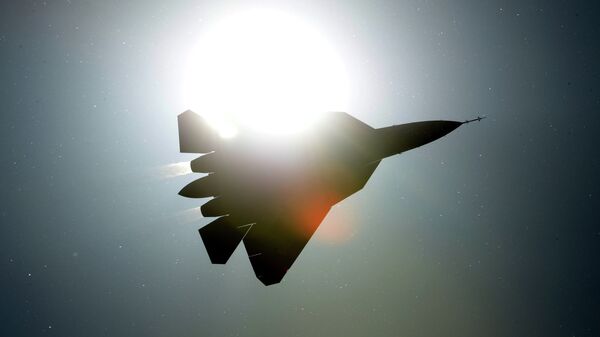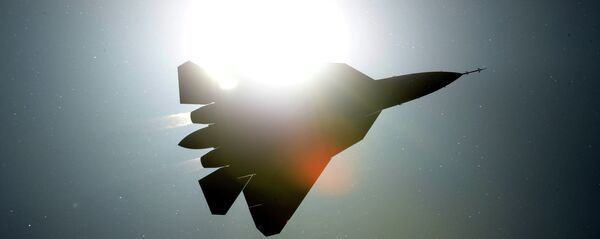New Delhi (Sputnik) – One of the biggest defense deals between India and Russia is likely see the light of day very soon. Indian Defense Minister Manohar Parrikar has confirmed that the final agreement on developing the FGFA between India & Russia will be formalized in the coming days.
With an approximate cost of $4 billion, the two countries will be working on a fifth generation aircraft prototype. During the negotiations held in December last year, India and Russia agreed to lower the cost of the project by 40% from the earlier estimate of $5.5 billion. As per the Inter-Governmental Agreement signed in October 2007, Hindustan Aeronautics Limited (HAL) is the designated implementation organization from the Indian side.
Defense Minister Parrikar stated in August last year, "As per the draft R&D contract, the delivery of FGFA to the Indian Air Force has been envisaged to commence after 94 months from the start of the R&D contract. India has spent Rs.1483.15 crore ($295 million) on the preliminary design stage of the Fifth Generation Fighter Aircraft (FGFA) program. The primary stage was completed in June 2013 based on a contract signed in December 2010 with the Russian side."
Amit Cowsish, former financial advisor, Ministry of Defense, told Sputnik, "I do not think money should be a problem; certainly not at this stage as the R&D cost will be spread over several years. To my knowledge, funds are not earmarked for specific projects over a long period of time, but allocated every year to meet the committed liabilities arising from ongoing contracts and for advances, and possibly one or two installments, against new contracts. Therefore, it cannot be said that allocation for the FGFA project, or for that matter any other project, is generally at the cost of some other project."
Experts are aware that India needs a wide range of aircraft from trainers to transport aircraft and from refuelers to fighter aircraft. The FGFA fits into this assessment because it is a futuristic air superiority aircraft, and also because of the experience gained from the success of the BrahMos missile.
Bharat Karnad, former member of India's National Security Council and security analyst told Sputnik, "Informed speculation suggests that the Modi government has weighed the danger of Russia simply terminating all engagements in the military sphere, which will create a big void that cannot be filled in terms of sourcing hardware and technical assistance for advanced and sensitive projects that cannot be filled, because while Western countries will be happy to sell "cutting edge minus-quality" weapons and weapons platforms, they will be unwilling to cooperate in actual technology transfer of the substantive kind, let alone co-design and co-develop sophisticated weapons platforms of tomorrow."
The Indian Defense Minister also mentioned that three squadrons of Sukhoi will reach India very soon which will keep the Indian Air Force fully operational. Currently the Indian Air Force has 33 squadrons of fighter jets against an actual need for 42.
Talks with #Russia on fifth generation fighter aircraft #FGFA for #IAF almost complete: @manoharparrikar on 02 yrs of #ModiGovt
— Neeraj Rajput (@neeraj_rajput) May 27, 2016


